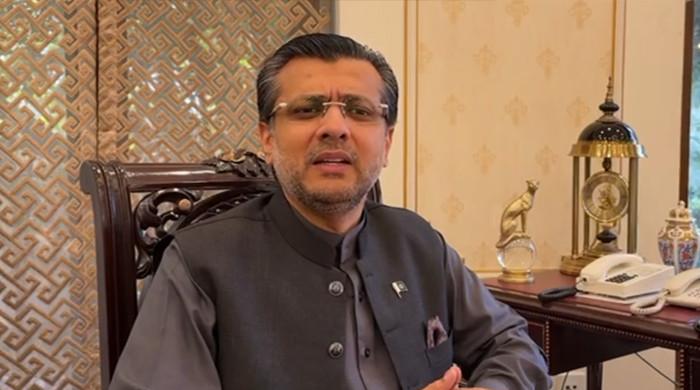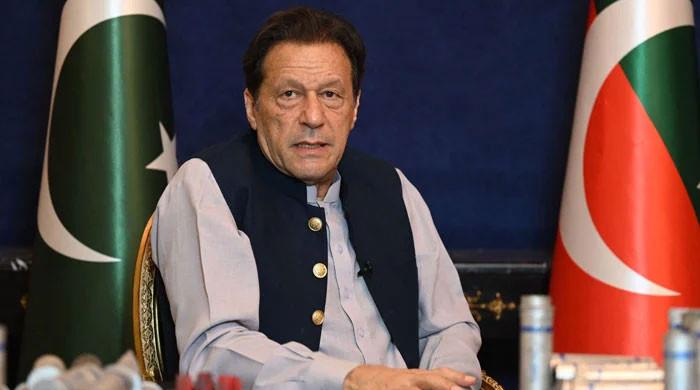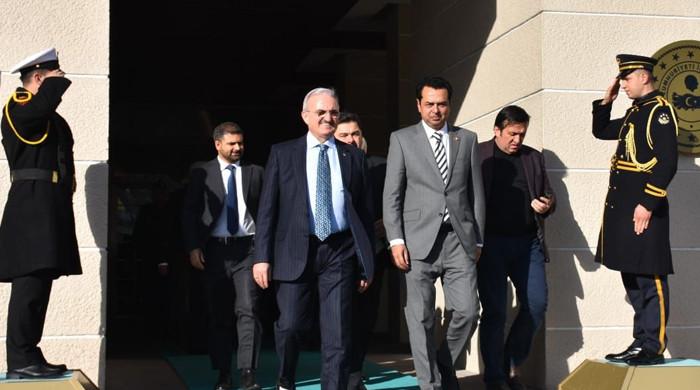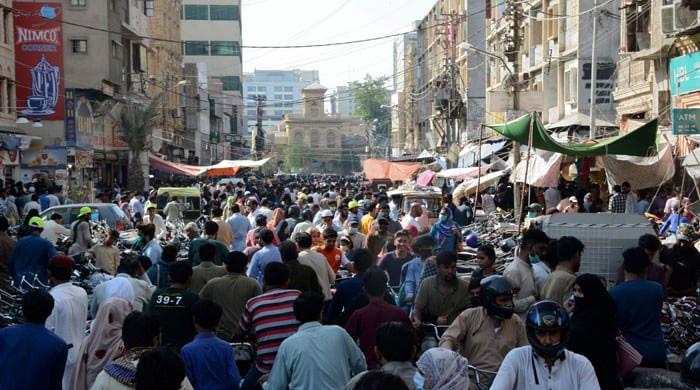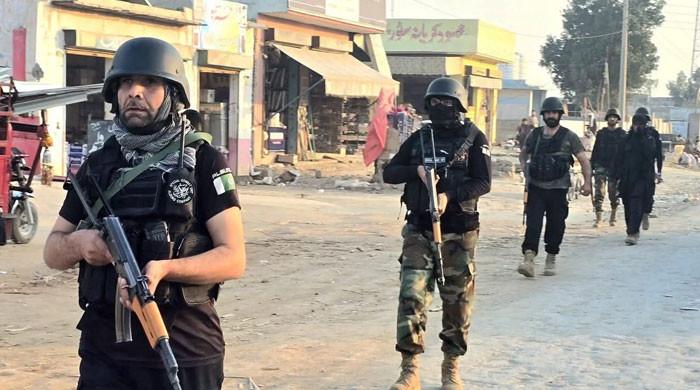Bilawal Bhutto achieved what Pakistan sought from India visit: US scholar
Foreign policy experts call Goa visit ‘correct’ decision, slam Jaishankar for ‘uncalled' comments on Pakistan
May 06, 2023
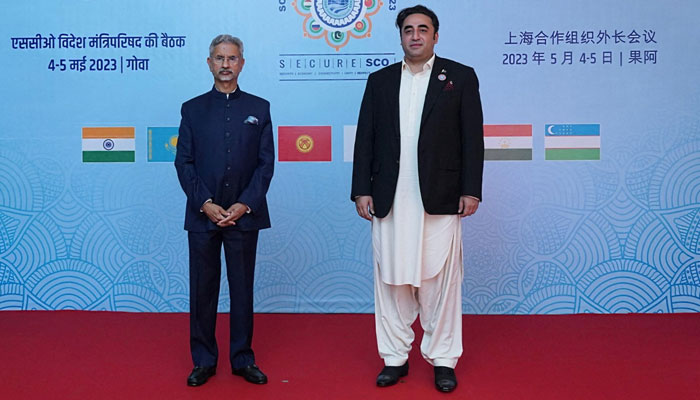
- Pakistan delegation did its job and should be returning satisfied, says former foreign secretary.
- Experts believe no chance of India-Pakistan talks in current environment.
- “No breakthrough” can b expected in India-Pakistan relations, says former diplomat.
Following Foreign Minister Bilawal Bhutto-Zardari’s visit to the Indian city of Goa for the Shanghai Cooperation Organisation’s (SCO) moot, American scholar Michael Kugelman believes that Pakistan “accomplished” what it had set out to achieve.
The top Pakistani diplomat attended the two-day moot in the coastal city, stealing all the limelight as all the Indian media was focused on Bilawal Bhutto.
In his official address, the foreign minister responded to his Indian counterpart's old mantra of cross-border terrorism telling him to not "weaponise terrorism for diplomatic point scoring" and called for cooperation among the member states.
Tweeting about the goings-on in Goa, South Asia Institute Director at the Washington-based The Wilson Center, Kugelman tweeted: “There was much criticism of the Pakistan FM’s visit to India for SCO, but he appears to have accomplished what Islamabad sought: Participation in the SCO deliberations, and separate sideline meetings with all SCO members except India. Multilateral engagement [with bilaterals] on the side.
'Pakistan delegation did its job'
While former foreign secretary Salman Bashir believes that the decision to attend the SCO Council of Foreign Ministers (CFM) summit was correct.
“I think we made our point of being present at an important SCO event. The Pakistan delegation did its job and should be returning satisfied,” he told The News.
Former ambassador Javid Husain, who served in China in the 1980s, explained: “Foreign Minister Bilawal Bhutto-Zardari’s visit to Goa was primarily to attend the meeting of SCO foreign ministers. It enabled our foreign minister to put across Pakistan’s point of view on issues of security, development, regional connectivity, China Pakistan Economic Corridor, Afghanistan, climate change, Kashmir and terrorism during the conference deliberations, media comments, and meetings.”
Husain added that Bilawal’s visit “highlighted the high importance attached by Pakistan to the SCO”.
Correct decision
Director Programs at Jinnah Institute Salman Zaidi, whose work has focused on Track 2 diplomacy, agrees with the clarity of vision that led Pakistan to attend the SCO summit, saying “Pakistan must never give up platforms to which it is a member, and it is to the credit of our foreign policy establishment that a decision was taken to attend the SCO summit, despite the known challenges.”
Pakistan’s presence at the summit also speaks to changing geopolitical realities and the visit to Goa— in a larger context — will benefit Pakistan.
A point Salman Zaidi agreed with saying: “Global leaderships are adapting to rapid geopolitical changes. Not only should Pakistan’s presence be marked at such forums, it also stands to gain from diplomatic opportunities to address challenges and leverage its strategic advantages.”
'No surprises'
Pakistan’s former representative to the United Nations Dr Maleeha Lodhi believes that there were no surprises during the visit.
“The visit went according to the script. No surprises. Both countries reiterated their positions and that meant [that], far from the ice melting between the two countries, the atmosphere was further vitiated — ruling out any forward movement in their troubled relations.”
'Uncalled for remarks'
Even though the visit was being hailed within the foreign policy circles, many slammed Indian External Affairs Minister S Jaishankar's behaviour towards the Pakistani delegation.
Speaking to Indian media at a press conference held after the end of the summit, the Indian minister called Foreign Minister Bilawal “a promoter, justifier, and I’m sorry to say, spokesperson of a terrorism industry which is the mainstay of Pakistan”.
Bashir said: “Jaishankar’s rhetoric against Pakistan was really not called for. But that is usual in such situations... I think the main thing is that the Indians are not prepared to engage with Pakistan at this point. And that is fine by us, I suppose.”
The view was also backed by Husain who said “no breakthrough” in India-Pakistan relations can be “expected” neither did it take place at the SCO summit.
He added that Jaishankar’s comments “clearly showed India’s intransigence and its refusal to create a climate conducive to putting Pakistan-India relations on a positive trajectory. Apparently, India is determined to exploit Pakistan’s current political instability and economic weakness to further its anti-Pakistan and hegemonic designs in the region. [Jaishankar] also underscored New Delhi’s refusal to show any flexibility on the Kashmir issue which is an indispensable condition for its peaceful settlement.”
'Indian behaviour unfortunate'
On the other hand, Salman Zaidi termed India’s behaviour “unfortunate” but believes that despite the “expected vitriol from Indian officials” Pakistan can still “claim its rightful stake on foreign affairs, especially regional issues”.
“India’s posture on Pakistan is not unexpected. The talking points are familiar, and the tired script on terrorism has once again been put to creative use. FM Jaishankar reserved his choicest vitriol for Pakistan, which will not suit the top diplomat of any host country, but Jaishankar is more ideologically committed to anti-Pakistan rhetoric than any of his predecessors,” said Zaidi.
'Successful'
Political analyst Mosharraf Zaidi slammed the Indian government and media for their diatribe against Pakistan and termed Bilawal Bhutto's visit a "successful" one.
Zaid said that the SCO meeting in Goa was a successful one for Pakistan.
"Without very much effort — other than showing up and speaking calmly — Pakistan’s foreign minister prompted India’s govt and media to show their true colors. As grand as India should be, it continues to be driven by hatred: petty."
'Superb on Kashmir'
In a tweet, former diplomat Abdul Basit, who has also served as Pakistan’s high commissioner to India, said he was impressed by Bilawal Bhutto-Zardari’s interview with Indian journalist Rajdeep Sardesai.
The former envoy added that the foreign minister “was particularly superb on Kashmir”.
“Glad he also raised [the issues of] Kulbhushan Jhadav and Samjhota Express blast. The way Jaishankar reacted in his press conference only reflected his hubris and frustration,” said Bast.




